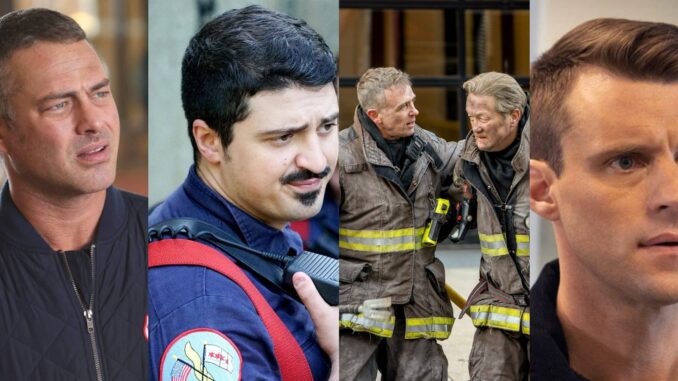
The siren’s wail, the roar of flames, and the heart-pounding urgency of rescue define Chicago Fire. But beyond the spectacular visuals and heroic acts, it’s the profound human drama, the tight-knit family of Firehouse 51, that truly grips its audience. And nothing underscores the brutal reality of their profession, or tests the loyalty of that family, quite like the moments that pull the rug out from under viewers, leaving them breathless and genuinely speechless. These aren’t just plot twists; they are seismic shifts that redefine the show’s emotional landscape, reminding us that no one, not even our most beloved heroes, is truly safe.
One of the earliest and most gut-wrenching blows came with the death of Leslie Shay in the Season 3 premiere, “Always.” Shay, the witty, compassionate paramedic and Severide’s best friend, was a cornerstone of the firehouse’s emotional dynamic. Her sudden demise during a building explosion, after what initially seemed like a routine call, was a stark and brutal awakening. The immediate aftermath – Severide’s frantic, desperate attempts to revive her, the silent horror of her colleagues, and the subsequent arc of grief that permeated the entire season – left fans in a state of shock. It wasn’t just the loss of a character; it was the shattering of an illusion. Chicago Fire proved, unflinchingly, that it would not shy away from the ultimate cost of heroism, setting a precedent that no one was truly invulnerable. The silence that followed her death, both on screen and in living rooms, was deafening.
Years later, the show delivered another devastating, deeply personal shock with the death of Brian “Otis” Zvonecek in the Season 8 premiere, “Sacred Ground.” Otis was the heart of Firehouse 51, a quirky, optimistic, and deeply loyal character whose presence brought levity and warmth. His injury during a mattress factory fire in the Season 7 finale left viewers on edge, but many clung to the hope of his recovery. That hope was brutally extinguished as he succumbed to his injuries in the opening moments of the next season. His final, whispered words to Cruz in Russian, “Brother, I will be with you, always,” were a punch to the gut, cementing the profound loss. The subsequent memorial, the raw, palpable grief of Cruz, Mouch, Gallo, and the entire house, and the permanent fixture of his memorial plaque on the truck, served as a poignant, constant reminder of the fragility of life. Fans were not just speechless; they were heartbroken, mourning a character who felt like a genuine friend.
Beyond the ultimate finality of death, Chicago Fire has also mastered the art of prolonged, nail-biting shock, epitomized by the building collapse in the Season 2 crossover episode, “A Dark Day.” While Lieutenant Casey miraculously survived, the sheer scale of the disaster, the graphic depiction of his entrapment, and the perilous, multi-episode rescue attempt had audiences on the edge of their seats, fearing the worst. The initial explosion, the chaos, and the race against time to save those trapped under tons of debris, including a main character, illustrated the show’s commitment to high-stakes realism. The shock here wasn’t just a sudden twist but an extended period of terror, where the audience was forced to confront the potential loss of a central figure. It was a harrowing reminder that even when death doesn’t claim them, the job leaves scars, both visible and invisible, on those who answer the call.
These episodes, and others like them, are more than just dramatic plot devices. They are crucial illustrations of the show’s core message: that the unwavering courage of firefighters comes at an immense personal cost. They leave fans speechless not just because of their suddenness or brutality, but because they expose the raw, unfiltered emotional reality of a profession that demands everything. In these moments, Chicago Fire transcends mere entertainment, becoming a powerful testament to sacrifice, grief, and the unbreakable bond of the chosen family that faces down the flames, knowing that any day could be their “dark day.” And it’s precisely this unflinching honesty that keeps viewers coming back, ready to have their hearts broken all over again, for the heroes of Firehouse 51.

